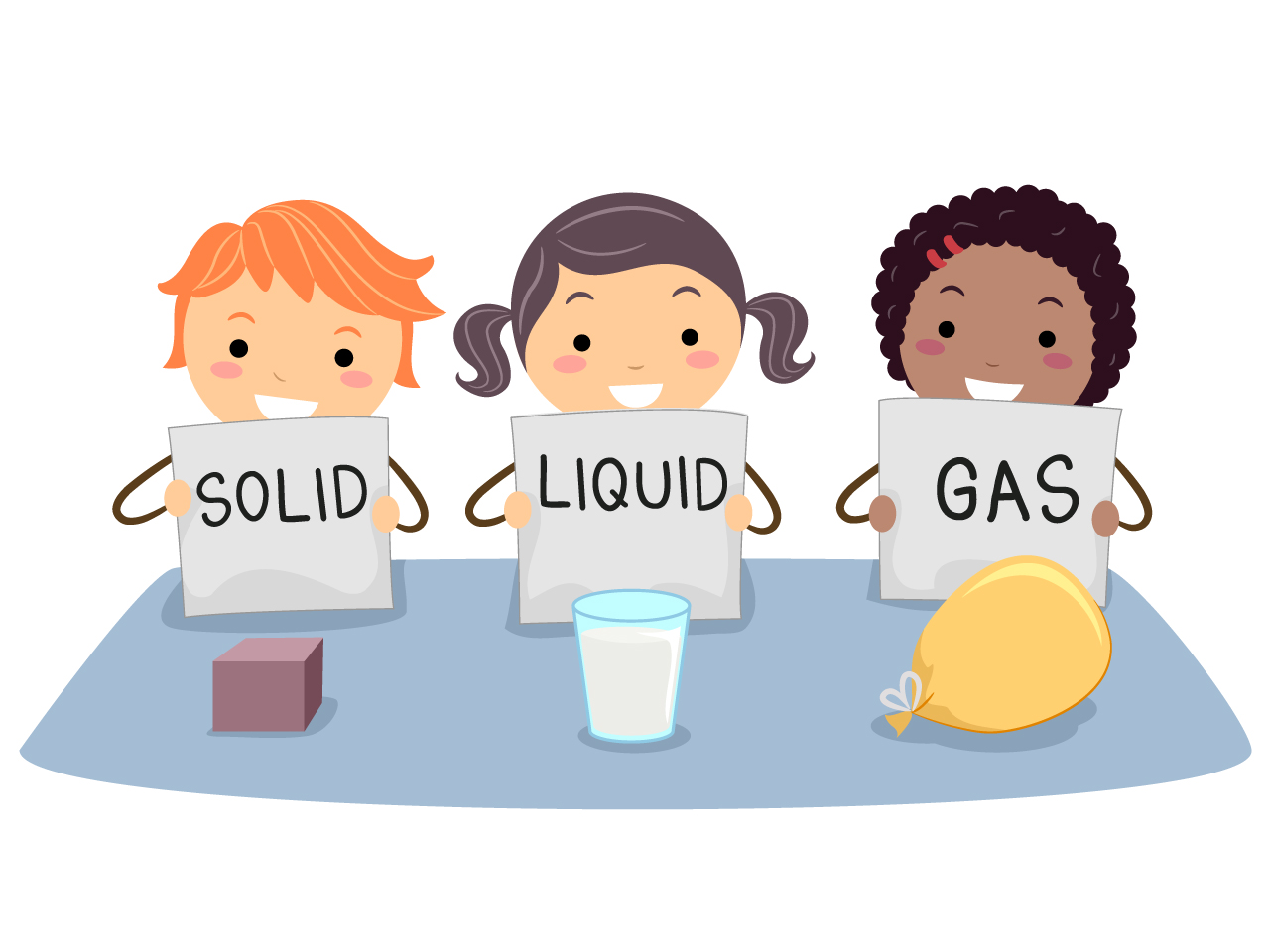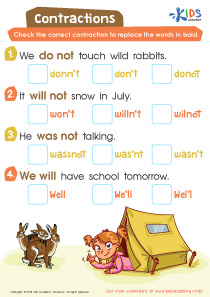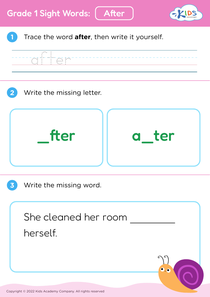Basic math concepts Grade 1 Worksheets
6 filtered results
-
From - To
Enhance your child’s math skills with our engaging Basic Math Concepts Grade 1 Worksheets! Tailored for young learners, these printable resources focus on essential math foundations such as addition, subtraction, number recognition, and basic shapes. Each worksheet is designed to promote hands-on learning and build confidence in math abilities. Our colorful and interactive activities make learning fun, ensuring that children master key concepts while developing problem-solving skills. Ideal for homework, classroom use, or to enrich your child's education at home, these worksheets are perfect for fostering a love of math. Start your child’s math journey today with our comprehensive, easy-to-use worksheets!
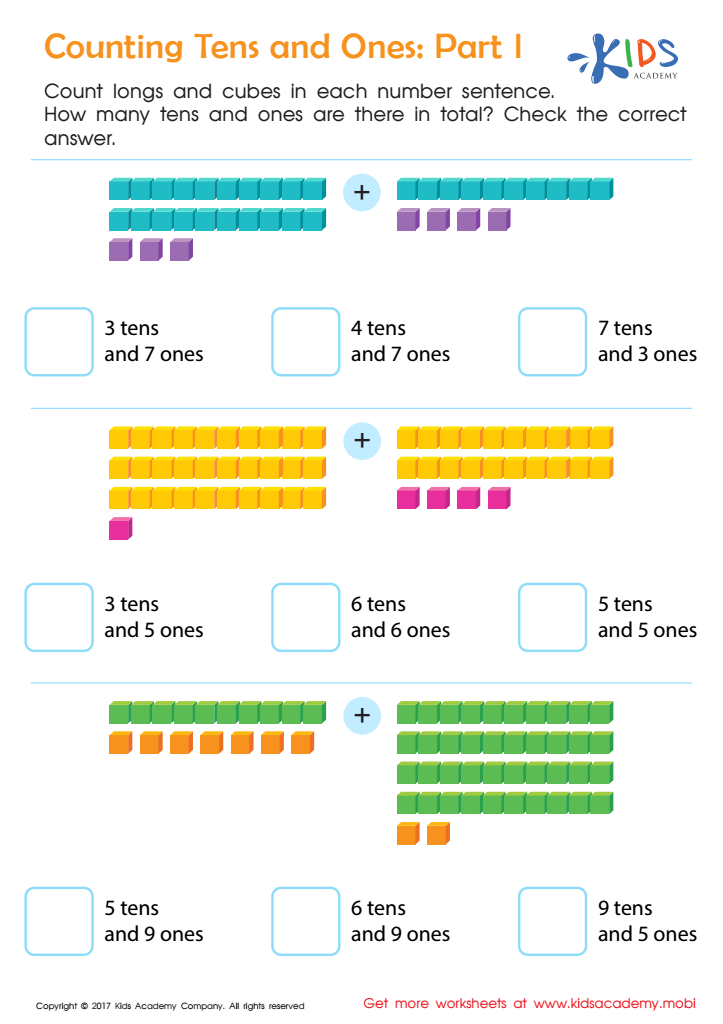

Counting Tens and Ones: Part 1 Worksheet
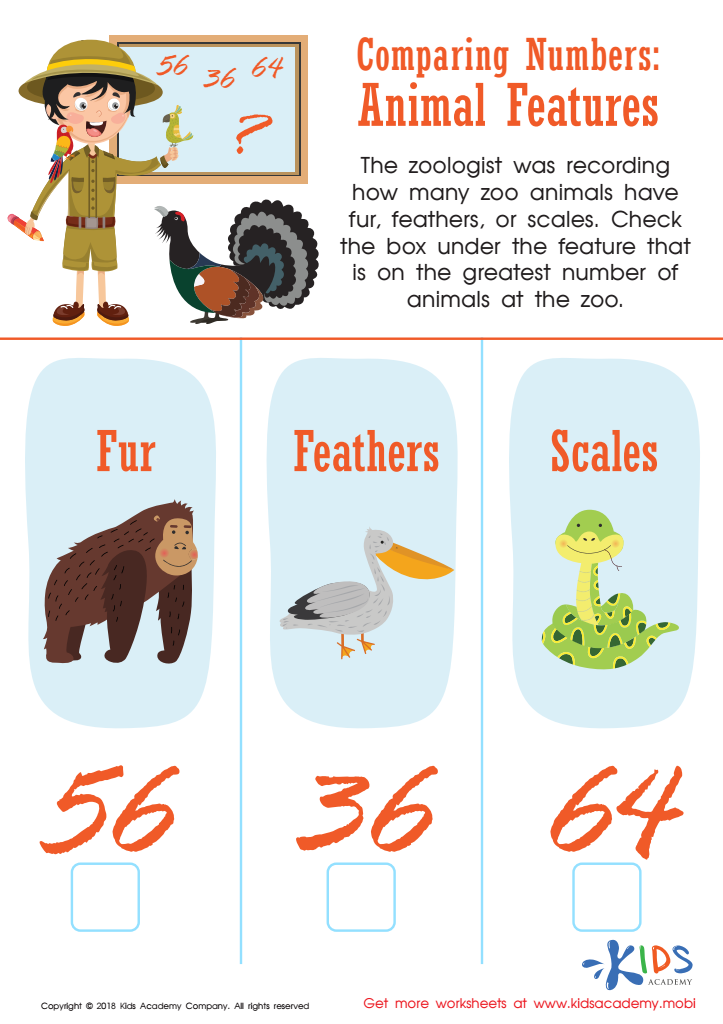

Animal Features Worksheet
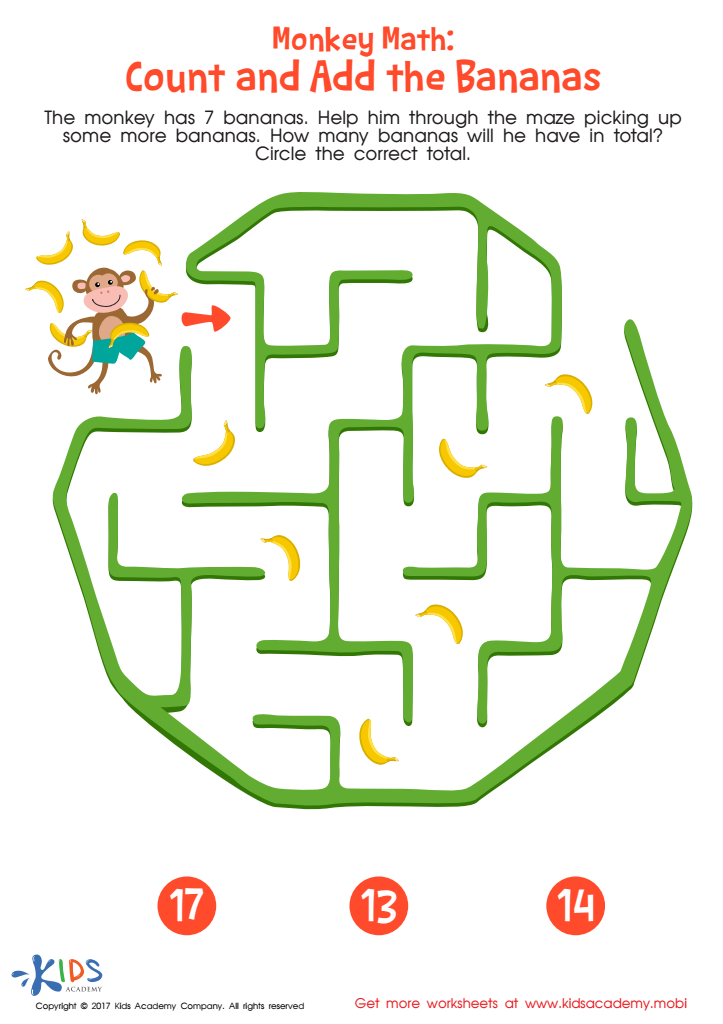

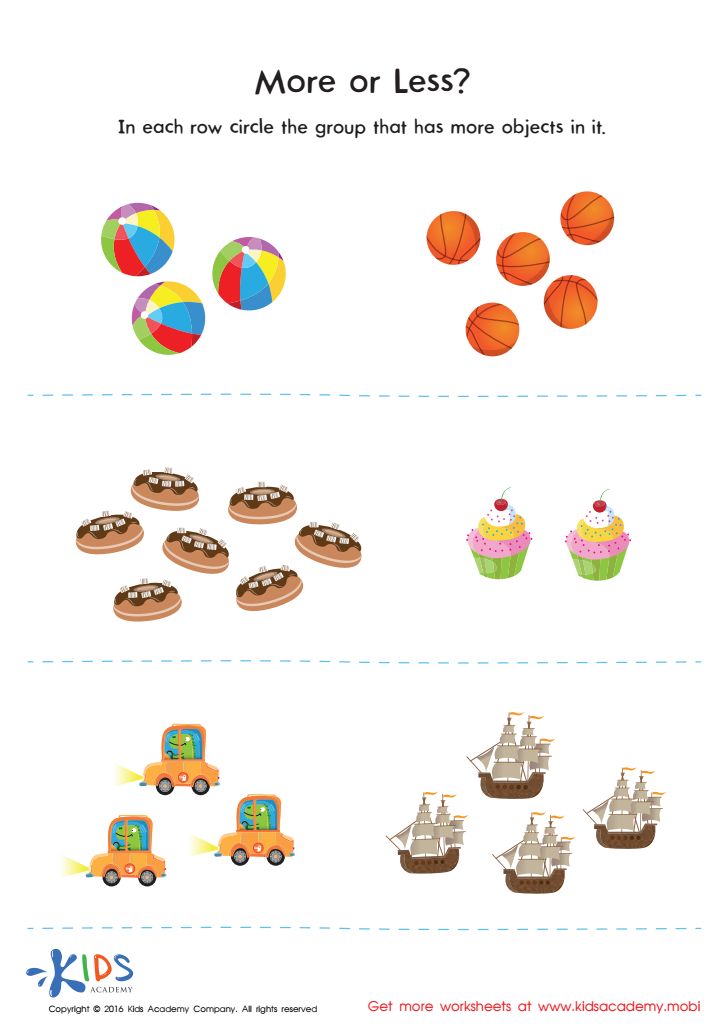

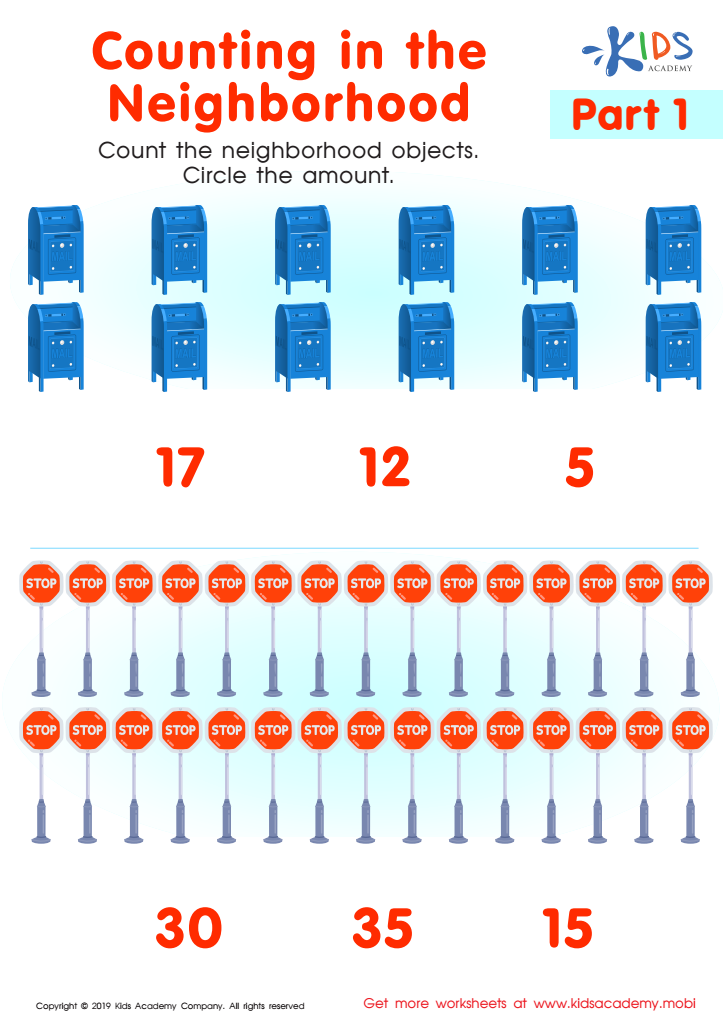

Counting in the Neighborhood Part1 Worksheet
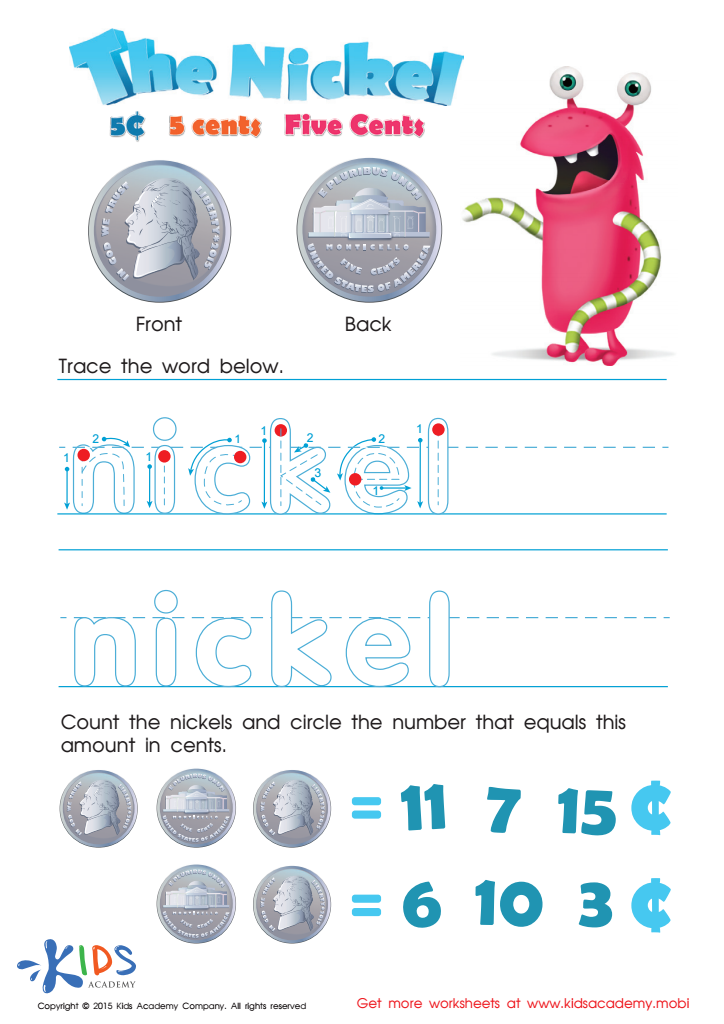

Five Cents or the Nickel Money Worksheet
Parents and teachers should prioritize basic math concepts in Grade 1 as this foundation lays the groundwork for a child's future learning and overall academic success. During this developmental stage, young learners engage in critical thinking and problem-solving, skills that are enhanced through early math instruction.
Firstly, mastering basic math concepts, like counting, addition, and subtraction, promotes cognitive development and strengthens logical reasoning. These skills are essential not just in math, but across subjects, fostering a well-rounded educational experience. Secondly, early math experiences build confidence; as children understand these fundamental concepts, they are more likely to actively participate in class and tackle more complex problems in later grades.
Moreover, math in early education helps sharpen communication skills, as children learn to describe their thought processes and strategies. It also connects to real-world applications, making learning relatable—like counting objects while shopping or understanding time in daily routines. By reinforcing these concepts at home and in school, parents and teachers can cultivate a positive attitude towards learning. Emphasizing basic math lays a strong academic foundation that influences not just future coursework, but also shapes how children view challenges and problem-solving throughout their lives.

 Assign to My Students
Assign to My Students









